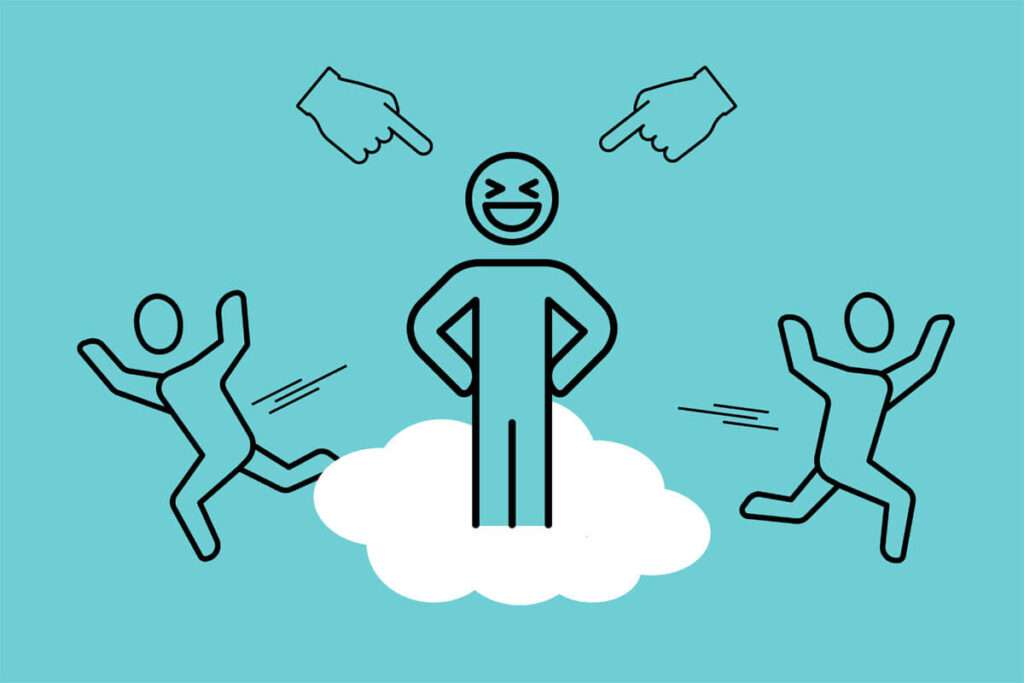Individuality Complex Symptoms: What Does It Mean?
Many of us have had that feeling of life slipping away, while everything on papers seem fine. That quiet knot. That restless self that refuses to settle. This is where individuality complex symptoms begin to make themselves felt. They don’t shout the way depression does, they don’t announce themselves like a physical illness, but they live in the way you measure everything against “me.” And somewhere in the middle of it, you start wondering, almost helplessly, what does individuality complex mean in the first place, and why does it feel so heavy when all you’re really doing is being yourself? (Must Read: Individuality complex is much more than self-obsession.)
What Does Individuality Complex Mean
So let’s not overcomplicate it. What does individuality complex mean? It’s the state of being trapped in the performance of yourself. You wake up and you’re already carrying the role. You step into a room and you’re adjusting the mask — sometimes subtle, sometimes obvious, but always there. Life stops being what it is and becomes what it says about you. (Related Read: Why does self-obsession limits us as human?)
But it’s fragile, isn’t it? Reason being, deep within we know our inadequacy. We know that we are a small and insignificant creature in this vast cosmos. So, instead of sitting with it, we inflate the self image. We craft stories of greatness, of uniqueness, of specialness. And this is really all that what does individuality complex mean comes down to: a clever escape from the ache of insignificance.

Individuality Complex Symptoms
How do you know it has you in its grip? Look closely. Individuality complex symptoms are slippery, they hide inside ordinary behavior. You feel boundaries everywhere — “me” and “not me,” friend or enemy, safe or unsafe. The world shrinks into two halves, and you’re always defending one against the other. (Also Read: Clinical aspects of individuality complex.)
There’s also the hunger. Achieve something, feel good for a day, then the emptiness creeps back. Buy the thing, wear the thing, show the thing — and yet the inner hole yawns open again. That’s one of the loudest individuality complex symptoms: the endless cycle of chasing, patching, but never filling.
And then the quiet ones. The sting when someone else gets praised. The overreaction to a casual remark. The irritation when no one notices you. These moments seem small, but they are cracks through which the truth leaks — that the self image is weak, and you are terrified it might crumble.
When The Self Becomes A Prison
Here is a fact that none of us admit: being attached to our individuality is tiring. We feel that we are protecting ourselves, however, all we end up doing is go in circles in a locked room. Every achievement is weighed. Every silence feels like rejection. Even joy gets filtered through the question of what it says about you. (Also Read: The real you exists beyond your concept of self.)
And the cost? The cost is aliveness. You stop being open to life as it is because you’re too busy defending the glass wall of “me.” It’s like carrying a fragile vase in both arms through a storm. You can’t enjoy the rain. You can’t look at the sky. You’re too focused on not letting the vase break — but it still cracks anyway. That’s the hidden cruelty of it.

Conclusion
There is a way through, but it’s not what the mind expects. You don’t escape by building a stronger version of yourself. You escape by letting the whole act collapse. Dropping the obsession with “who I am” feels like death at first, but it’s actually release. On the other side, there’s space — vast, unmeasured. Consciousness itself, not squeezed into a name or a role. And in that space, the old questions — what does individuality complex mean, how do I deal with individuality complex symptoms — lose their grip. They mattered only as long as you were locked inside the cage. Step out, and the cage disappears.
FAQs
The characteristics aren’t always dramatic. They slip in quietly, and you might not even call them symptoms at first. You notice how touchy you get when criticized, how you light up only when praised, how comparison never stops no matter how much you accomplish. You see yourself pushing harder to be recognized, yet none of it really satisfies. Over time, the pattern becomes clear — the self image is calling the shots. Some characteristics stand out:
- Sensitivity to criticism, even harmless remarks
- Needing constant approval or recognition
- Habit of comparing yourself with nearly everyone
- Struggling to feel joy without outside confirmation
- A deep, persistent sense of emptiness
In psychology, individuality is usually a neutral word. It describes what makes you, you — the personality traits, preferences, experiences that separate one person from another. That uniqueness is valuable, but psychology also warns that when individuality hardens into obsession, it isolates.
Although we need our individuality to function in this world, but if cling too much to it, we live as a limited being and never experience of limitlessness.



